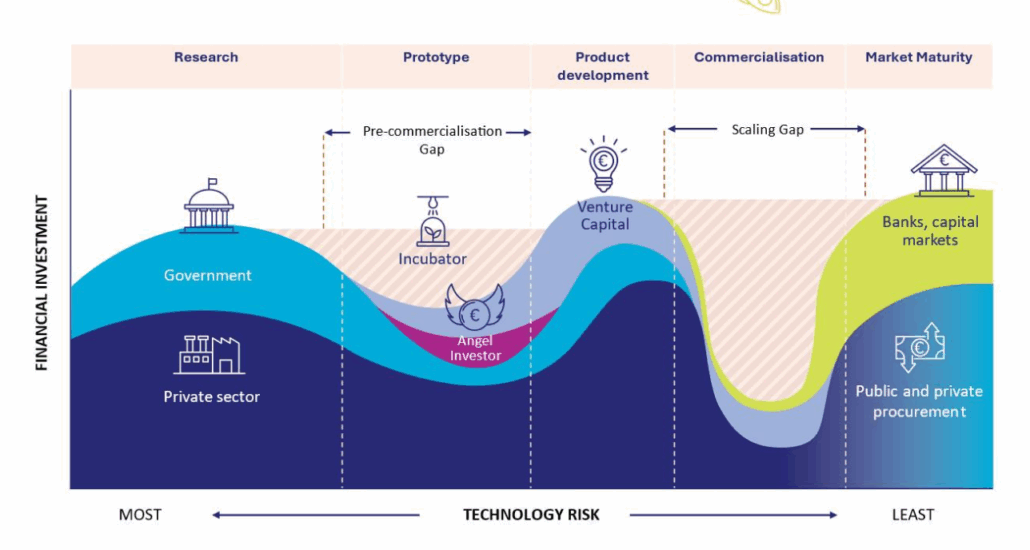
EU set to improve investment for biotech start-ups and scale-ups
The European Commission has promised to create a new public-private fund to bridge the ‘valley of death’ phase for technology companies facing expansion. In addition, the EU wants to reduce its lag in the number of technology unicorns compared to the United States and China with a start-up and scale-up strategy.
The European Commission has unveiled a new strategy entitled ‘Choose Europe to start and scale’, which aims to strengthen the development and financing of start-ups and scale-ups within the European Union, particularly in innovation-driven sectors such as biotechnology, quantum computing and deep tech. The strategy, published on 28 May 2025, addresses the challenges faced by start-ups and growth companies in scaling up their production in the EU. According to agency and media reports, the European Commission plans to launch a public-private scale-up fund worth at least €10bn to increase the number of European unicorns, i.e. high-tech companies with a minimum turnover of €1bn.
However, the official European Commission document entitled ‘The EU Strategy for Start-ups and Scale-ups – Choose Europe to start and scale’ (COM(2025) 270 final) does not contain any specific reference to a €10bn fund. Instead, the document refers to the creation of a ‘Scaleup Europe Fund’ next year with a public component and approximately four times as much private funding. The Reuters news agency quotes an ‘EU official’ who is said to have confirmed that a multi-billion euro amount is being targeted for the fund. The fund would acquire shares in promising companies and be managed by a private investment manager. The strategy document also does not provide any information on whether funds from existing programmes will be reallocated or new funds will be made available by the Commission. Just like the Clean Industrial Deal, the funding depends on the EU’s next multiannual financial framework (MFF) being increased. A decision on this, and thus also on the EU Commission’s ambitious goals, is expected in summer 2025. The funds would then start flowing in 2028.
Pillars of the strategy
Central to the new start-up and scale-up strategy is the ambition to improve access to finance. While private capital availability, including venture funding, has increased in recent years, according to the EU Commission, a notable funding gap remains for companies moving from early development to scale (see figure). This is especially true for biotechnology ventures, which often require substantial capital. “Although the EIC Fund has become one of Europe’s most important deep tech investors in just four years, the demand for EIC support from excellent deep tech companies cannot currently be met,” commented Rafael Laguna de la Vera, head of the German nnovation agency SPRIND. The Commission emphasised the importance of optimising existing EU-level instruments—such as InvestEU and the European Innovation Council (EIC)—to facilitate adequate funding for proof-of-concept, regulatory preparation, and market expansion.
Beyond financial support, the Commission seeks to create more favourable regulatory conditions. The current framework, though rigorous in consumer protection and ethics, is often complex and inconsistent across Member States. This fragmentation can delay product approvals, complicate cross-border operations, and increase compliance costs, particularly for biotech companies subject to both national and EU health and safety regulations.
Furthermore, many innovation-driven companies struggle to recruit and retain staff with advanced expertise in science, regulation, or digital technologies. The strategy promotes greater mobility of highly skilled professionals within the EU and calls for enhanced coordination among research bodies, industry, and national authorities to better align skills development with sector-specific needs.
The Commission also highlights the need for a more interconnected innovation ecosystem. It stresses the role of regional innovation hubs, university spinouts, and cross-border platforms in facilitating knowledge transfer, accelerating technology maturation, and supporting market entry. Frameworks such as Horizon Europe and Digital Innovation Hubs are key tools to support startups navigating complex development paths, especially in life sciences and health technologies.


 EC
EC Audiovisual Librairy of the European Commission
Audiovisual Librairy of the European Commission Audiovisual Library of the European Commission
Audiovisual Library of the European Commission